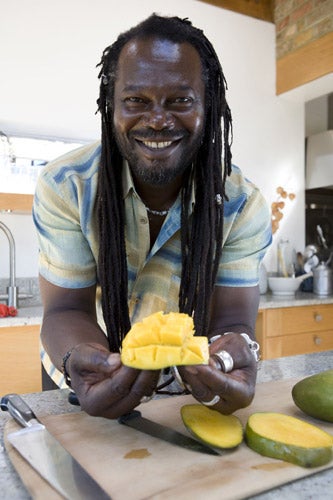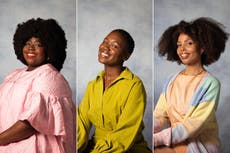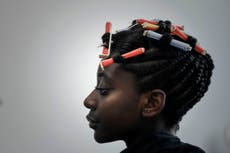Afro hair discrimination could cost jobs due to ‘hierarchy of hairstyles’, report warns
’It was grossly inappropriate to have a whole team of my peers and management glaring at me, asking constant questions and picking apart my hairstyle as if I was a special attraction at a zoo,’ one former company director says

A former director at a global pharmaceutical company has told how she was scrutinised “like an animal at a zoo” because of her natural hair, as a new report shows discrimination against Afro styles could cost people jobs.
This comes as ‘Workplace Hair Acceptance’, a new report by World Afro Day, has revealed that bias against Afro hair in the workplace is likely to cost jobs and suggested a “hierarchy of hairstyles” from more Eurocentric decreasing to Afrocentric styles is commonplace across offices.
Some 84 per cent of 1,000 decision-makers from the UK and US, including CEOS and managers, told researchers straight hair on a woman was appropriate in all circumstances, compared with 64 per cent who felt an Afrocentric hairstyle - braids or buns - was suitable.
Paige Lewin, 30, spent years working for an events management company and described how hair discrimination impacted her professionally.
After sporting dark brown braids prior to attending a big meeting with a senior colleague, Ms Lewin was astounded when her boss called a meeting to quiz her on whether she planned to wear that style to an important meeting with a pharmaceutical organisation.
”My boss said he thought it would be better to change back to the ‘other style’ I’d worn - a straight weave - as it would help me put my ‘best foot forward’,” the professional said.
“Luckily I had enough tenure and success metrics under my belt in the company to firmly remind him that I’m sure once I start the pitch everything will be absolutely fine and I wouldn’t worry, to which I received a look of total contempt as he said ‘alright’, got up and left the room abruptly.
“However, the fact that this was such a burden on his mind he felt the need to bring it up prior to my meeting, not taking any of my experience or skill set into account was disheartening, confusing and incredibly frustrating. Needless to say, I got the business in without issue. My braids didn’t come up in conversation once.”
“The experience I had regularly was when I would go into a morning meeting, even with the same hair type that I’d had for days or months such as braids, but with it up for a change or if, god forbid, I decided to wear a head wrap...my hair would become topic of conversation immediately for the larger portion of the meetings,” Ms Lewin continued, describing how this could last for up to 15 minutes.
“This would happen so often that I expected it and it genuinely gave me so much anxiety that sometimes I would want to style my hair a particular way some days for a quiet life.
“The issue is that even when the conversation veered on the side of complimentary, it still was grossly inappropriate to have a whole team of my peers and management glaring at me, asking constant questions and picking apart my hairstyle as if I was a special attraction at a zoo, I felt singled out constantly and this made it difficult to do my job efficiently.”

The report is released to mark the seventh anniversary of World Afro Day on Friday.
The survey revealed employer bias against Afrocentric hair in the workplace and a clear lack of understanding of what is legal and discriminatory towards Afro hair and Afrocentric hairstyles.
Previous unpublished research from World Afro Day shows a shocking level of ignorance in attitudes and behaviour towards Afro hairstyles in the workplace. One employee said: “Had my boss tip water on my hair for ‘fun’, to see what will happen.” Another person said: “I have had people treat me like I am not human.”
Michelle De Leon, World Afro Day CEO and report author said: “People with Afro hair have known for a long time about hair discrimination in the workplace, but it has rarely been quantifiable until now.
“The Employer Hair Attitudes Survey reveals that bias against Afrocentric hairstyles can cost jobs. Africans should be able to look African in the workplace like Europeans can look European and Asians can look Asian.
“Ending hair discrimination is decades overdue, I hope companies and politicians will now do the right thing and act on the research.”
Musician and celebrity chef Levi Roots said: “It is truly upsetting to accept that there is still a prejudice against people of colour who wear their hair naturally. As a Rastafarian, I have suffered this throughout my life and now I, like many others, am speaking out about it.
“There needs to be meaningful legislation against employers who use this form of racism against people in the workplace; and children should be free to look and feel like themselves culturally, and not be forced to adopt a version of themselves chosen by someone else.”
Join our commenting forum
Join thought-provoking conversations, follow other Independent readers and see their replies
Comments




Bookmark popover
Removed from bookmarks